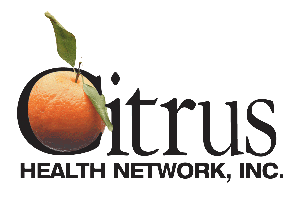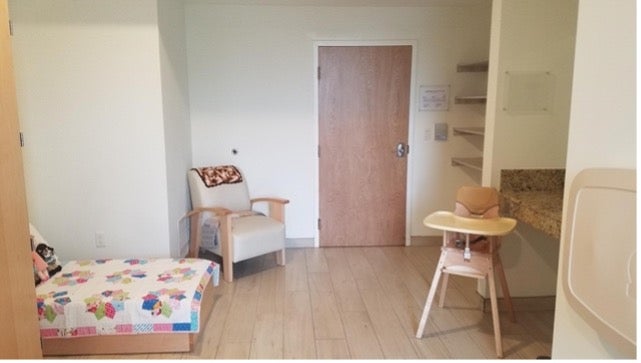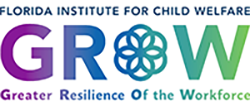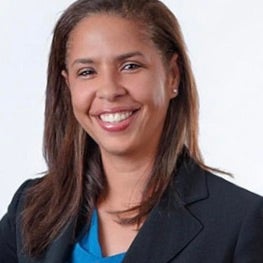"Where Am I Going?": Attending to Child Welfare Removals in Florida

Hundreds of children in Florida are removed from their homes each year due to child welfare reports and investigations. In 2020, the State of Florida reported 28,268 child welfare cases.
Each time a child is removed from their home, there is confusion and uncertainty with potentially traumatizing results. In March of 2022, leadership from the Center for the Study and Promotion of Communities, Families, and Children (CFC Center) had the opportunity to learn about an innovative program working to mitigate trauma on children in Florida that can occur during a child welfare case.
The program, Children’s Reception and Intake Base (CRIB), was designed by Citrus Healthcare Network (CHN) in South Florida to mitigate trauma for children during stressful circumstances. CRIB represents one of the many services provided by Citrus Health Network.
Since 2019, CRIB has provided children with a safe, welcoming and supportive environment and therapeutic support for more than 1,330 children and 819 families.
Citrus Health Network takes a total wellness approach with each client, coordinating care across a range of health and community-based services. With its holistic approach to child welfare services, CHN recognized the effects of trauma during removal and developed CRIB to address them.
The organization was formed in 1979 as a community mental health center and became a federally qualified health center when it added primary care services in 2004.
In 2019, CHN founded the Citrus Family Care Network (Citrus FCN), the community-based care lead agency for child welfare services in Miami-Dade and Monroe Counties. Citrus FCN now provides child welfare services in local communities for children who have been abused, neglected or abandoned.

The CRIB program is unique as it provides an array of services and resources for children sheltered by the Florida Department of Children and Families. The program also provides an appropriate transition place for children who have been removed from their homes and are on the path to a new home environment. Through CRIB, there are dedicated supplies and spaces for children to play, eat, sleep, and do other activities.
Citrus Health Network has also ensured that the CRIB program offers developmentally appropriate education and therapeutic intervention to help children and families understand what is happening. The program facilitates comfort calls between caregivers, parents and child welfare professionals. These calls include conversations about the history, likes, dislikes and other needs of children in the program to make transitions as successful as possible.
Impressed with the site, staff and program activities, the CFC Center partnered with CHN to evaluate process measures as a first step to future outcome research. As affiliates, the center is working with Dr. Jean-Jacques, director of CHN Prevention Services and Intake, on evaluative efforts that hope to shed light on how the CRIB program impacts child welfare case outcomes and future practices in this area.
“We hope to show how the CRIB program can effectively reduce placement disruptions and positively impact reunification for children entering care,” said Ellen Piekalkiewicz, CFC Center director. “The data should also help to understand better how the program’s efforts can help lead the way for more transformative and emerging programs that shape child welfare system practices across the state to be trauma-informed and family-oriented at the onset of removal.”
 The center and the Florida Institute for Child Welfare, housed at the FSU College of Social Work, also partnered to host a webinar to educate and familiarize professionals with the innovative program. The webinar: Attending to Trauma During Child Welfare Removal was presented by Dr. Beverly Jean-Jacques and covered the CRIB program’s intention, operations, delivery of care and highlighted the program’s innovative strategies to manage removal-related stressors for children and families effectively.
The center and the Florida Institute for Child Welfare, housed at the FSU College of Social Work, also partnered to host a webinar to educate and familiarize professionals with the innovative program. The webinar: Attending to Trauma During Child Welfare Removal was presented by Dr. Beverly Jean-Jacques and covered the CRIB program’s intention, operations, delivery of care and highlighted the program’s innovative strategies to manage removal-related stressors for children and families effectively.

More than 110 child welfare and social work professionals attended the webinar. Feedback from the event was overwhelmingly positive.
“I think every new child protective worker should have the opportunity to view this webinar during his or her initial training,” said an attendee. “I have not done a removal myself in 30 years, but this would have helped me help the children during the process, especially as a young fresh out of college child protective specialist. Thank you so much for this training.”
The CFC Center looks forward to continued collaboration with Citrus Health Network and Dr. Jean-Jacques, and thanks them for their support of so many Florida families.
